Zeribians
Sama suomeksi täällä!
The Zeribians are known as the traders, fishermen and pirates of the Northern seas. They are the most talented seafarers of Salan. In their native language, Zeribian means 'the people of the tribe'. In the Nem language of the Farens they are often called Valeran or Easterlings, because they live on the Eastern Islands.
Zeribians are thought to be quiet and reserved but very polite people. They seem to be obsessed with following their strange seeming customs and traditions. For example, they usually abstain from drinking -which often comes as a shock to the Farens. They like to keep to themselves, and follow a strict hierarchy among themselves. Zeribian women are more rarely seen travelling, but when they are, they seem to be sheltered but revered. Their sphere is back at their home islands, where the Zeribian mothers dominate their sons, kids and a house full of servants.
You can read about Zeribian culture in more detail in Zeribian culture!
The Zeribians have lived in the Eastern Islands since the prehistoric times. The tradition tells that they came from the North after the floods receded and revealed the newly formed islands. They probably lived in loosely organised tribes for a long time, like the modern Natives of the Eastern Islands. The contacts between the Zeribians and Farens began around year 500 AH when the Farens founded the Republic of West Island on Der Fem Island, which already had coastal native tribes who had trade contacts with Zeribians. The Crescent eruption of 620 AH and the following famine and plague caused widespread movements of Zeribian people, leading to a large number of them settling on Der Fem. 800AH the growing Zeribian population, who had grown fed up with the trade restrictions and taxing, rebelled against the Faren leadership, resulting in Zeribians eventually taking over the Island. Since then the Zeribian presence on the mainland has been growing stronger.
You can read about Zeribian culture in more detail in Zeribian culture!
History
The Zeribians have lived in the Eastern Islands since the prehistoric times. The tradition tells that they came from the North after the floods receded and revealed the newly formed islands. They probably lived in loosely organised tribes for a long time, like the modern Natives of the Eastern Islands. The contacts between the Zeribians and Farens began around year 500 AH when the Farens founded the Republic of West Island on Der Fem Island, which already had coastal native tribes who had trade contacts with Zeribians. The Crescent eruption of 620 AH and the following famine and plague caused widespread movements of Zeribian people, leading to a large number of them settling on Der Fem. 800AH the growing Zeribian population, who had grown fed up with the trade restrictions and taxing, rebelled against the Faren leadership, resulting in Zeribians eventually taking over the Island. Since then the Zeribian presence on the mainland has been growing stronger.
Naming Traditions
Family names
Family name is the primary name for an Zeribian, and always used to address strangers and people of higher social class. People who were not born in a well established family often use the name of their home island or town as their surname.
Other names
The Zeribians think names can hold power over an individual. They usually avoid using personal names with strangers or in formal situations. Important people who have family names are called by Title Familyname (for example Vizier Šiwke) and the common people can use the name of their home settlement like a family name (The farmer of Uganbalžan).
When the child is seven-years-old, the ceremony of Second naming is performed, and the child gets a proper adult name. It is also common that a Zeribian changes their name later if something important happens in their life. Zeribians often think Faren names are funny, because they often have names of animal origin even when adults.
Second naming
When a child is born they are first given a temporary nickname that they use until they are seven. This name is believed to protect the vunerable child from the influence of demons before they have built their own personality. The belief is, that without a proper name the demons can't tell the individual children apart, and thus can't get attached to them. These names are usually the names of unimportant small animals or items, such as biš 'mouse', leŋ 'fish' gwar 'frog' or šig 'cup'.When the child is seven-years-old, the ceremony of Second naming is performed, and the child gets a proper adult name. It is also common that a Zeribian changes their name later if something important happens in their life. Zeribians often think Faren names are funny, because they often have names of animal origin even when adults.
Culture
Major language groups and dialects
The common Zeribian language is Ngad i zerib. The language has different dialects on almost every island, that are significantly diverged. All the official business is handled in the Standard Zeribian, which is the standardised literary dialect, and the only form of language used in writing. The nobles also speak the standard language in day-to-day life, setting them apart from the common folk.
In addition to Ngad, several other native languages are spoken on the islands, some related to Ngad on various degrees and some unrelated. A good Zeribian is expected to at least have a good command of an understandable dialect of Ngad, and all the variation from Standard Zeribian is considered ugly and corrupted.
Culture and cultural heritage
The sea is the most important part of the Zeribian culture. They will rarely settle further than an eye's reach from the sea, and in those cases will make sure to be near to a lake or a river. The sea is their main source of food. They make sure to bathe daily to keep clean. In the Zeribians' opinion, the land dwellers are dirty and smell of pigs.
Cuisine
The Zeribian cuisine is based on seafood. They eat fish, shell fish, shrimp and sea weed. Their diet is also rich in fruit and nuts that grow plentily in the rainforests. Cattle are not kept in big numbers, but they keep goats and birds, and supplement their diet by hunting. They also cultivate grain to bake into hard bread, and to brew into low-alcoholic beer used as main stables during sea travel.
Many Zeribians follow ritual diet restrictions. Fasting before major ceremonies is common, and many Zeribians abstain from drinking alcohol outside of religious ceremonies. In the rituals they drink sahfyl, a fermented fruit beverage, often mixed with other substances to cause religious hallucinations.
Shared customary codes and values
A Zeribian's life is all about the family. They despise individualism and dedicate all their good deeds to the glory of their family, but are also harshly punished for any misbehaviour. An individual who isn't useful for their family has essentially no reason to live.
Average technological level
Zeribians sailing skills are world famous. Even the smaller boats they use are quite seaworthy, and the bigger ones can make weeks' travel without touching ground, unlike the Faren vessels that have to travel hugging the coast lines. The stability of their vessels comes from the design where a long and narrow hull is connected to an outrigger, which makes the boat stable in rough water without affecting the speed.
The boats' hull and outrigger are usually covered with a deck. Bigger cargo vessels can also have two hulls of equal size. The underside of the deck can be used for storage, or even sleeping or cover from the rain if it's big enough. The smaller ones often have a small cover on the deck. Despite the large deck size, the boats are very light, and can be carried if necessary. The boats are powered by a single triangular sail, but can also be paddled when necessary.
The Zeribians are capable of navigating the open ocean by the celestial objects, wind patterns and sea animals. Their sailing routes connect the whole Eastern Islands into an excellent network of fast transportation, communication and trade, unlike anything seen on the continent.
Common Etiquette rules
The Zeribian society is very hierarchical. The commoners are not expected to speak in the presence of nobles unless asked. Strangers address each other by surname (+ first name if necessary), while surnames are always used to address higher class. The people who are not born in a remarkable family often use the name of their home location as their surname. Ngad i zerib also has separate set of polite pronouns.
Common Dress code
Main article: Zeribian fashion
All genders wear large jewelery and piercings. Especially ear and nose piercings are common, while the bigger and more painful piercings are often indicative of priesthood or other status.
The common people fight against the tropical heat by usually only wearing a knee-lenght cape on top of their loin cloth, while slaves and servants will often have only a loin cloth. The common women often also wear a binder, and tie a square shaped cloth on top of it to conseal their breasts.
The nobles are expected to use more covering clothing. A nobleman can wear skirt, covered by a richly decorated cape, or, on a more formal occasion, a trational decorated breastplate made from metal, leather or flexible wood.
The third gender šyrzir often mix male and female clothes and accessories. They often wear female shirts with male loin cloth.
Art & Architecture
On the countryside Zeribians live in communal longhouses with large extended family and servants. The houses are built on pillars, that offer protection against regular floods and earthquakes, as well as predators and attacking tribes. The underside of the house is used to keep the house animals.
Even in cities Zeribians prefer looser architecture than Farens. The common houses are built from wood, but temples are built from wood especially in areas influenced by Farens.
Common Customs, traditions and rituals
Religious celebrations
The celebrations are opened by public religious ceremonies performed at the temples, after which the people gather on the streets to share food and drink. Many of their slaves are also allowed to rest, and join their masters at the feast. The celebrations often include performing traditional dances. Normally the nobles aren't supposed to be under any drugs that affect their necision making, but on the ceremonies they will use alcohol and psychoactive drugs to communicate with the gods. Drunkennes is heavily frowned upon on common people too, and any drunkards causing problems face public corporal punisments or even death penalty.
Sacred duels
Zeribians frequently arrange duels between noble warriors. The matches are fought publicly on dedicated courts in front of the city's temples. The fighters use a compination of a spear and a mace. The goal of the match is to knock the opponent unconscious, or make him unable to continue. After this, the winner together with priests will lead the losing warrior to the temple, where he has to perform a blood sacrifice. Usually this is enough to please the gods, but on special occasions a full human sacrifice may be needed. Any warriors killed or sacrificed during the duels will get a honored burial and are believed to gain the favor of all gods if they fought bravely.
Birth & Baptismal Rites
The first right of a baby is performed right after the birth. The newborn is presented before the father of the family, who will then pick up the baby if he accepts it as his own. Regardless of who the actual father is, the child always becomes the child of the ruling father of the house. After that, an offering is performed to the gods, and the father names the child.
Funerary and Memorial customs
Zeribians believe that the dead must be protected from the possession of the evil spirits. The common people are usually cremated or sunk to the sea to destroy the body. The bodies of the nobility are protected with tons of magical jewelery, and then placed in the mausoleum of their Great House.
Common Taboos
Main article: Zeribian ritual purity and purification
Zeribian culture is filled with rules that dictate ritually pure behaviour and the relationships between the casts. The nobles have to follow very strict rules to maintain their ritual purity, and the contact between nobles and commoners is limited, to not taint the nobles' purity.
Zeribian culture is filled with rules that dictate ritually pure behaviour and the relationships between the casts. The nobles have to follow very strict rules to maintain their ritual purity, and the contact between nobles and commoners is limited, to not taint the nobles' purity.
Modesty
Zeribian culture is very anti-individualistic. One of the most important cultural rules is to always be considerate of others, and not to make any fuss about oneself. This includes being quiet on public spaces, keeping one's surroundings and public property clean, and always being on time on meetings.nakedness
For a common Zeribian, being without one's loin cloth is considered nakedness. It is acceptable when when swimming. And Zeribians swim a lot so It's not unusual to see naked fishermen going about on their business. The different social classes are not supposed to be naked together. The nobles will only bath together, while the others are not supposed to look at them if they are not properly clad in full dress. Similarly, it's embarassing for a lower-class person to be naked in front of a noble, but they are expected not to be able to behave properly.Ideals
Beauty Ideals
Older prestigious Zeribian men keep a long well-groomed beard. In the noble class both men and women wear their hair long. Shoulder cut is thought to be more fitting for the working classes. Ear and nose piercings are common, the biggest and most painful piecings are worn as a sign of status.
Gender Ideals
The Zeribian society is very patriarchal. The family is lead by the oldest male, and only the eldest male child will inherit property and titles. The men will tend the family's possessions and businesses outside home, while the women will take care of home and children. The girls will be married out to other families, and will ensure warm relations between the two families.
In addition to male and female, the Zeribians recognise a third gender, šyrzir 'a half-cut person', who are half-male and half-female. Because of their name, a common misconseption among the outsiders is that they are castrates, but that is rarely the case. The šyrzir can have both male and female jobs in the community, but they are often involved in spiritual professions and are believed to hold minor divine powers. They are not allowed in sacred only male or female situations, and are not considered to be either in choosing a partner, even though they don't usually marry.
Relationship Ideals
The Zeribian women usually marry young, to a spouse chosen by the parents. Because it's quite common that they marry to another island, the girl has often barely met the future husband before. The men on the other hand usually pursue a career before marrying. They might join the military, study, or travel tending to the family's business. This means that the husband is generally older than the wife. Polygamy is quite common, especially for the richest it's a sign of wealthiness to be able to afford multiple wives.
Zeribians have negative attitude towards sex in general. They think it's ritually impure, and should be only practiced in marriage. In practice the young, especially men, spend a lot of time in their youth before getting married. It is accepted, though not encouraged, to keep a lover from a lower cast or a servant. Homosexual relationships between two persons of same casts is very much frowned upon. In practice these relationships are fairly common. Many travelling Zeribians also end up in relationships with Farens, who are known for very open acceptance of same-sex relationships, but getting caught from a relationship like this would be very shameful for the Zeribian.
The šyrzir are allowed to marry any gender, although it's more common for them to be the second spouse or a lover of someone who is already married, because the main purpose of marriage is to produce heir.
The šyrzir are allowed to marry any gender, although it's more common for them to be the second spouse or a lover of someone who is already married, because the main purpose of marriage is to produce heir.
Major organizations
Social classes
The Zeribian society is divided into the elite, citizens and outsiders and servants. The outsiders are foreigners and poor working class, that has very little rights and influence on the state, but have a profession to support themselves. The servants are tied to their masters in almost slave-like conditions. They don't have the right to represent themselves or to leave their master's cervice without their master's permission or a legal reason, but the masters often release well-behaving servants who can become free worksmen. Many of the servants are actual slaves taken as war prisoners or received as tribute. The citizens are the wealthier people that can affect decision making based on their wealth, and have a slim change of becomming noble if they become influential and rich enough. The nobility is the highest class of the Zeribian society. The leading positions in the state as well as the religious professions are reserved for the nobles. In return the nobles is also expected to live a very controlled and pious life. The nobles must show that they are in control of themselves at all times. They must avoid using drugs and alcohol that could lead to careless decision making. They must be able to control their sexual drive and not indulge themselves in sex outside of marriage, that could lead general weakness and making decisions based on love insted of reason. The lower classes are seen innately incapable of holding the same high standard as the elite, so they aren't bound by the same restrictions.
Encompassed species
Related Organizations
Related Items
Related Myths
Languages spoken
Related Locations
A commoner's canoe
Rural Zeribian house
Zerbian warrior



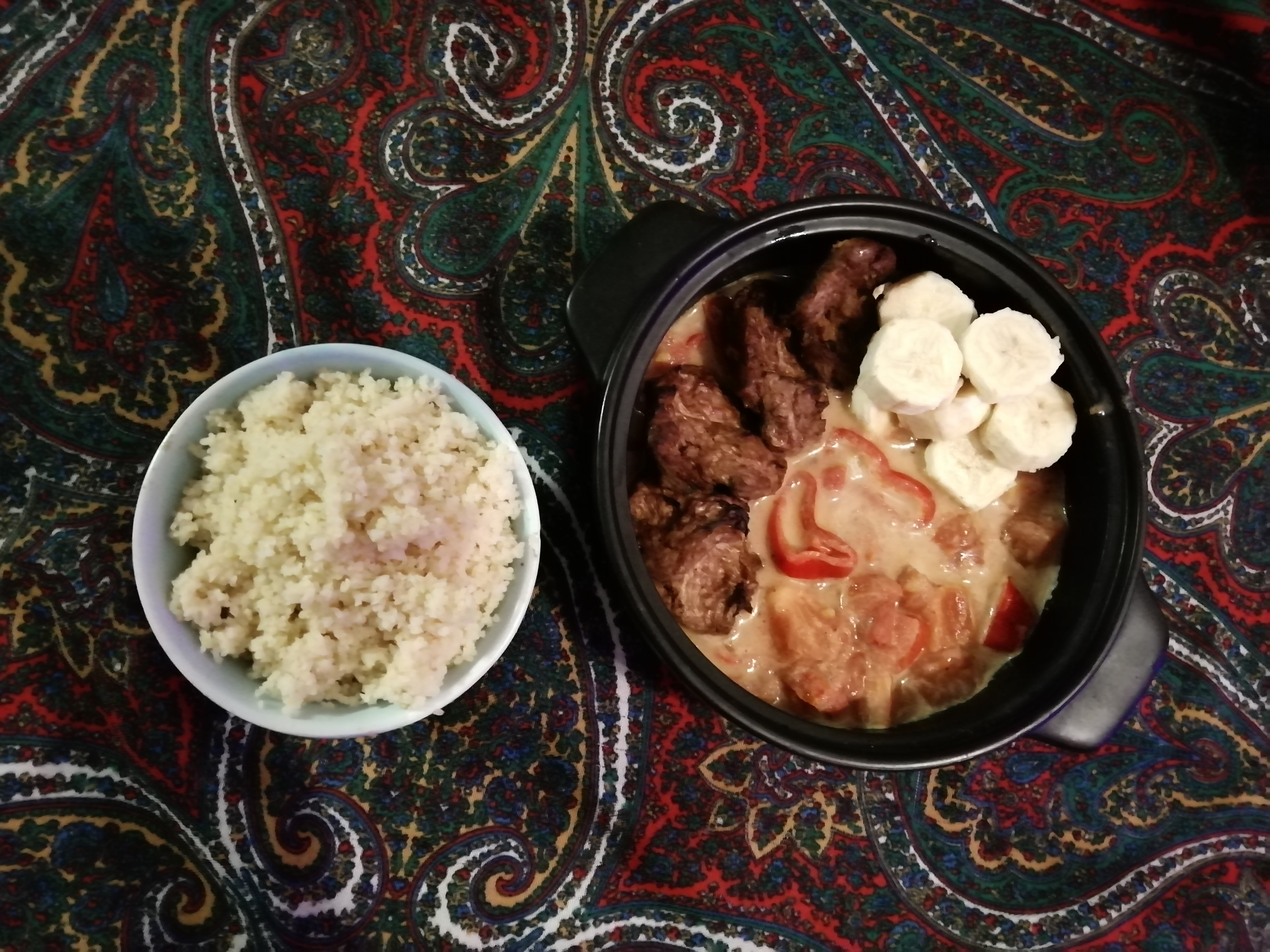
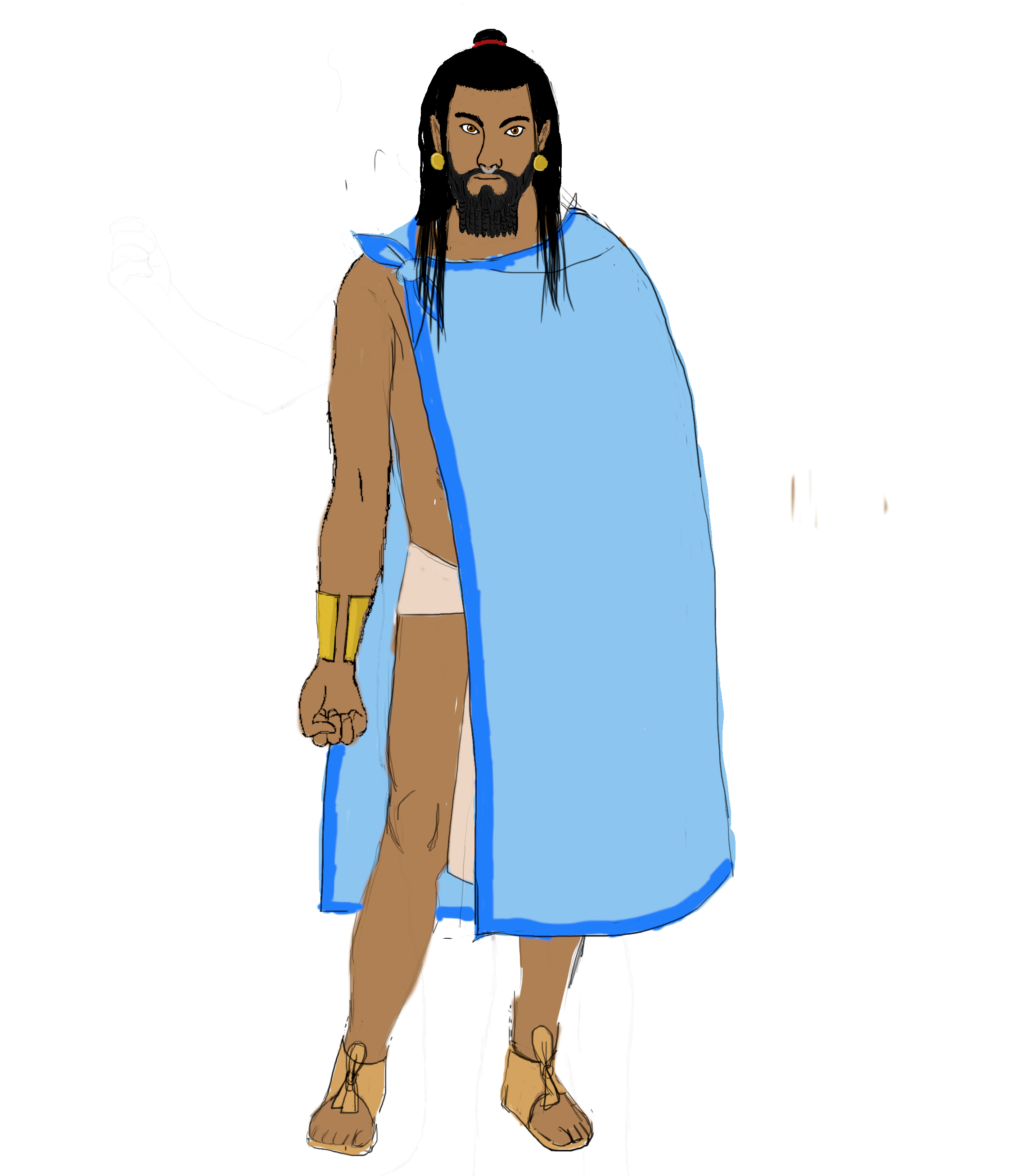
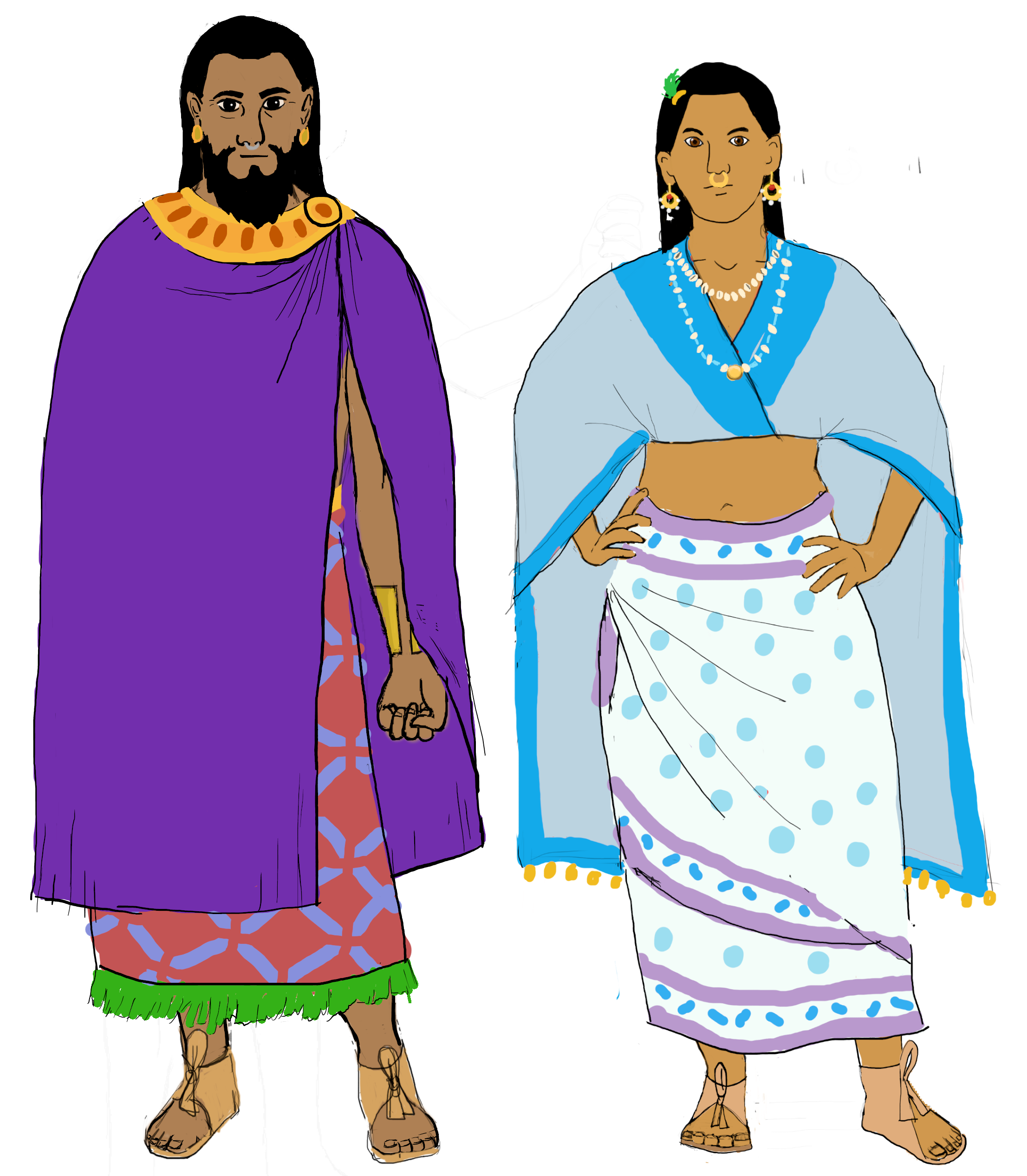
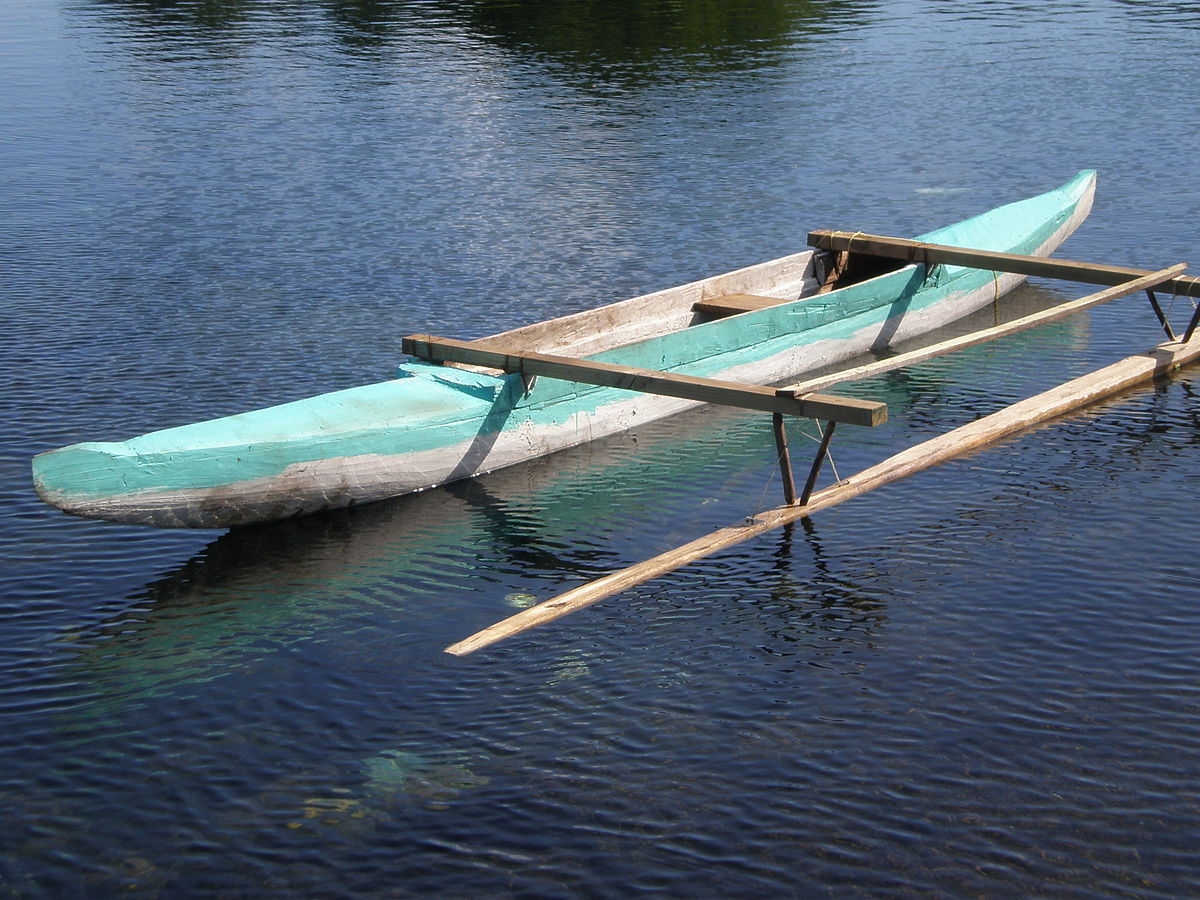
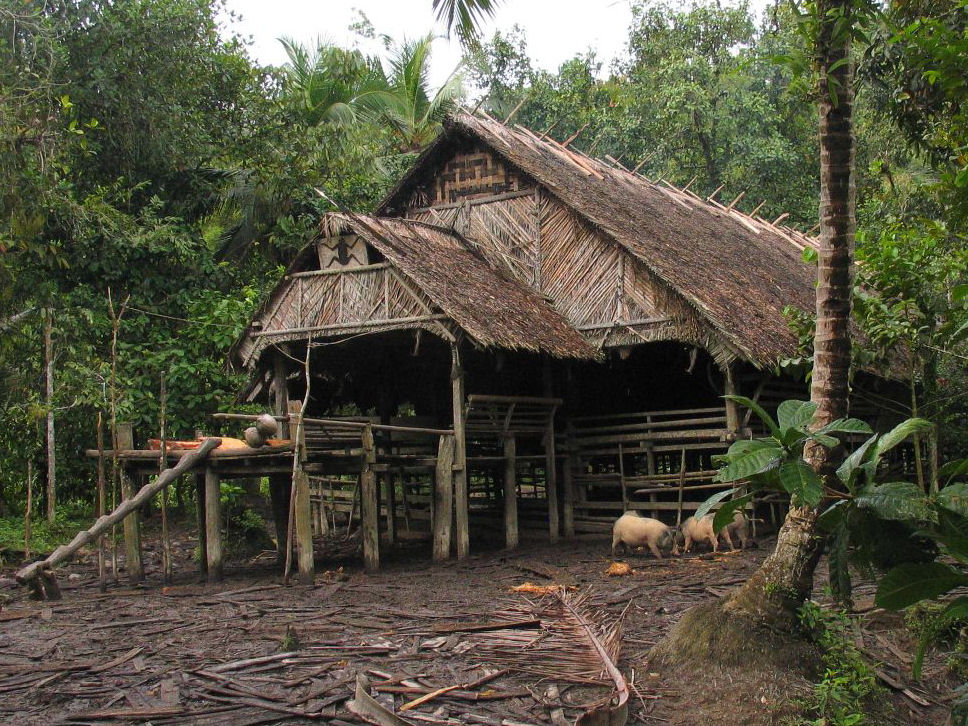
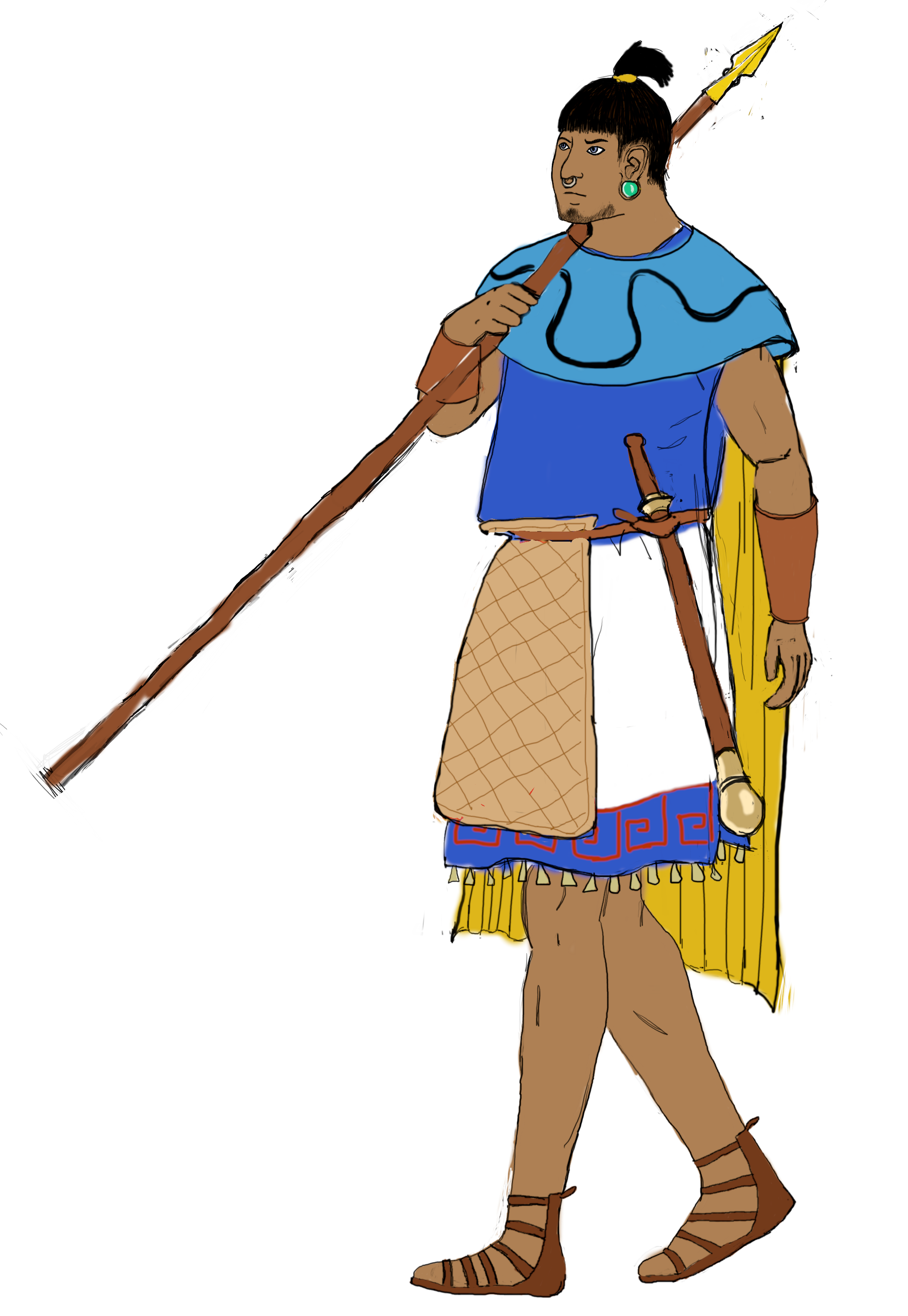

Comments